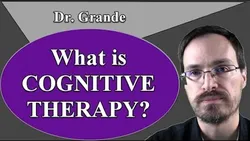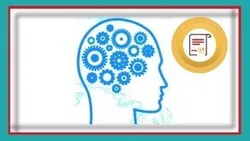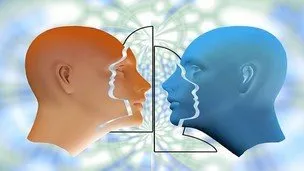
CBT Class #1 
Cognitive Therapy (CT), Rational Emotive Behavior Therapy (REBT) and Reality Therapy (Choice Theory) are all forms of behavior therapy. CT focuses on changing negative thought patterns, REBT on challenging irrational beliefs, and Choice Theory on making responsible choices. All three aim to help people make positive changes in their lives. ▼
ADVERTISEMENT
Course Feature
![]() Cost:
Cost:
Free
![]() Provider:
Provider:
Youtube
![]() Certificate:
Certificate:
Paid Certification
![]() Language:
Language:
English
![]() Start Date:
Start Date:
On-Demand
Course Overview
❗The content presented here is sourced directly from Youtube platform. For comprehensive course details, including enrollment information, simply click on the 'Go to class' link on our website.
Updated in [February 21st, 2023]
1. You can gain a comprehensive understanding of Cognitive Behavioral Therapy (CBT) and its various components, such as Beckian Therapy, Rational Emotive Behavior Therapy (REBT), Reality Therapy, Behavior Therapy, Dialectical Behavior Therapy (DBT), Person Centered Therapy, and Cognitive Dissonance Theory.
2. You can learn about the various strategies used in CBT, such as the Four Schedules of Reinforcement in Behaviorism, Cognitive Behavioral Strategies for Narcissistic Personality Disorder, and Cognitive Distortions and Irrational Ideas.
3. You can gain practical experience in CBT through role-plays, such as those involving clients with symptoms of Borderline Personality Disorder, Narcissistic Personality Disorder, Dog Phobia, Mixed Feelings about Dating Someone Older, The Premack Principle with Weight Loss, and Loss of Hope.
4. You can gain an understanding of the various theories of counseling, such as Cognitive Therapy, Rational Emotive Behavior Therapy, and Behavior Therapy.
5. You can learn about the criticisms of Beckian Cognitive Therapy and the Limitations and Criticisms of Person Centered Therapy.
[Applications]
After completing CBT Class #1, participants can apply the knowledge they have gained to their own practice. They can use the theories and techniques they have learned to help clients with symptoms of Borderline Personality Disorder, Narcissistic Personality Disorder, and other mental health issues. They can also use the cognitive and behavioral strategies they have learned to help clients with Cognitive Dissonance Theory, the Premack Principle, and other cognitive-behavioral techniques. Additionally, they can use the theories of Cognitive Therapy, Rational Emotive Behavior Therapy, and Behavior Therapy to help clients with their mental health issues.
[Career Paths]
1. Cognitive Behavioral Therapist: Cognitive Behavioral Therapists (CBTs) use evidence-based techniques to help clients identify and modify negative thought patterns and behaviors. CBTs are trained to assess and diagnose mental health issues, develop treatment plans, and provide individual and group therapy. Developing trends in this field include the use of technology to provide remote therapy, as well as the use of cognitive-behavioral techniques to treat a wider range of mental health issues.
2. Dialectical Behavior Therapist: Dialectical Behavior Therapists (DBTs) use a combination of cognitive-behavioral and mindfulness-based techniques to help clients manage their emotions and behaviors. DBTs are trained to assess and diagnose mental health issues, develop treatment plans, and provide individual and group therapy. Developing trends in this field include the use of technology to provide remote therapy, as well as the use of DBT techniques to treat a wider range of mental health issues.
3. Reality Therapist: Reality Therapists (RTs) use a combination of cognitive-behavioral and person-centered techniques to help clients identify and modify their thoughts and behaviors. RTs are trained to assess and diagnose mental health issues, develop treatment plans, and provide individual and group therapy. Developing trends in this field include the use of technology to provide remote therapy, as well as the use of RT techniques to treat a wider range of mental health issues.
4. Behavior Therapist: Behavior Therapists (BTs) use a combination of cognitive-behavioral and behavior modification techniques to help clients identify and modify their thoughts and behaviors. BTs are trained to assess and diagnose mental health issues, develop treatment plans, and provide individual and group therapy. Developing trends in this field include the use of technology to provide remote therapy, as well as the use of BT techniques to treat a wider range of mental health issues.
Course Provider

Provider Youtube's Stats at AZClass
Discussion and Reviews
0.0 (Based on 0 reviews)
Explore Similar Online Courses

Explaining the Criminal Mind in 60 Minutes: Introduction to the Psychology of Crime

The Complete iOS 7 Course - Learn by Building 14 Apps

Python for Informatics: Exploring Information

Social Network Analysis

Introduction to Systematic Review and Meta-Analysis

The Analytics Edge

DCO042 - Python For Informatics

Causal Diagrams: Draw Your Assumptions Before Your Conclusions

Whole genome sequencing of bacterial genomes - tools and applications

Cognitive Psychology: Employee and Customer Behaviour

Cognitive Behavioral Therapy CBT Life Coaching Certification


Start your review of CBT Class #1